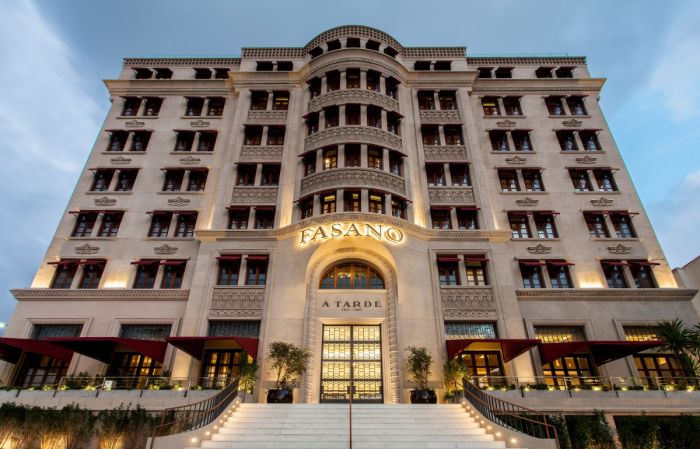
Stretched out on the coast of northeast Bahia, Salvador is so much more than just any other Brazilian city. In fact, the African influences give it a completely different vibe than the metropolitan São Paulo or the beachy Rio de Janeiro. And with LATAM offering a new direct flight from Miami, this city known for its bright colored colonial buildings and its vibrant Afro-Brazilian culture is more accessible than ever.
Founded by Portuguese settles in the 16th century, Salvador was the first capital of Brazil and is to this day one of the oldest colonial cities in South America. A city full of spirit and color, Salvador shines through its dancing, music, and delicious food. The city is split into two levels, easily accessible by the Elevador Lacerda, a 70-meter (230-feet) elevator built in 1873 that continues to be used today. The upper part hosts the old town of Pelourinho, a neighborhood filled with decorated churches, pastel colors and beautiful narrow roads. The lower part is the modern one, a world of high rises and residential dwellings that line up the coast along with beautiful beaches and restaurants serving a mix of European and Bahian food.
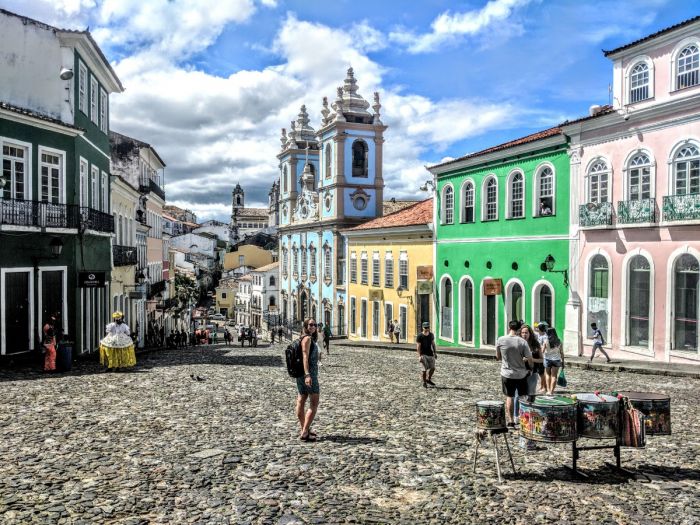
Walking down the street in the old town of Pelourinho, visitors are welcomed by Baianas wearing traditional costumes with hoop skirts and elaborate head wraps, street musicians performing on drums at all hours of the day, and people taking advantage of the music for a little dance in the middle of the town square. The colors of the building and the cobblestone on the street reminisce of an old Portuguese town with African influences.
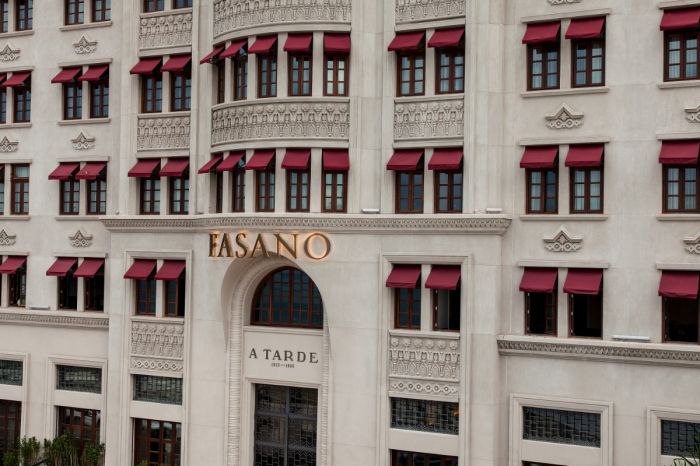
Just a few minutes walk from Pelourinho lies Fasano, a luxury hotel perched on the shore of the Bay of Bahia. Looking to preserve the look and feel of the old town, while at the same time keeping in place all the features of the modern world, Fasano is hosted in a renovated historic building from the 1930s that was the first headquarter of the newspaper A Tarde for 45 years. Looking to bring luxury into the hospitality world of Bahia, Fasano looked and building and integrating with the local culture from the location in the Castro Alves Square, in the historical center of Salvador, with a privileged view of the Bay of All Saints to making sure that all the decorations and the renovation is in line with not only preserving the building as a cultural and artistic heritage site of Bahia, but also making sure that it celebrates the vibrancy of the city.
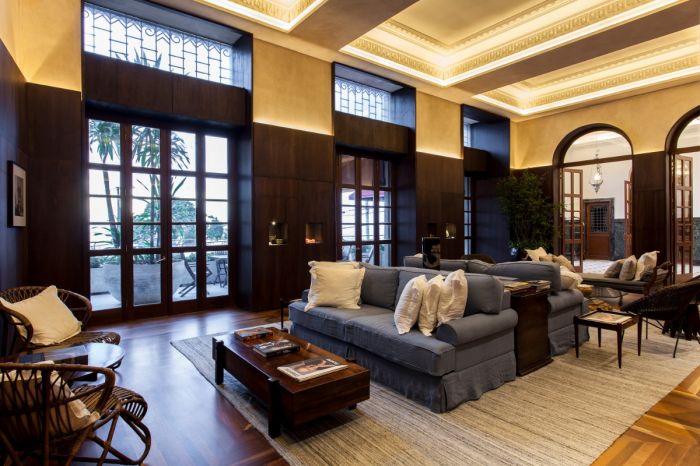
Housed in this heritage building, the hotel features 52 rooms out of which 18 are suites and it’s 100% smoke free. Some rooms still have the original wooden walls, which blend in perfectly with the marble bathrooms, the light blue rugs (a color very prevalent in Bahia), the modern lighting fixtures, and the wonderful views of the bay or the cobblestone streets.
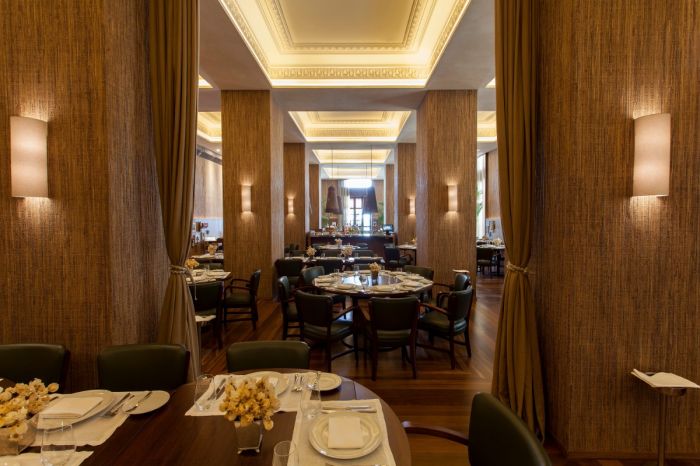
The Fasano Restaurant located on the ground floor of the hotel, brings a menu inspired by Italian cuisine as well as the local Bahian flavors. “The Fasano Restaurant of our Salvador hotel will offer some flagship Italian cuisine: the Costoletta Allá Milanese, the Filetto di Manzoalla Rossini, the Veal Ossobuco with White Wine and Herbs and the Spaghetti Allá Carbonara. The cuisine will have the Fasano DNA, dedicated to the Italian classics, and there will also be local Bahian dishes signed by Tereza Paim”, says Rogério Fasano. The space itself has preserved the aesthetic of the original building, while at the same time lining the walls with banana tree straw.
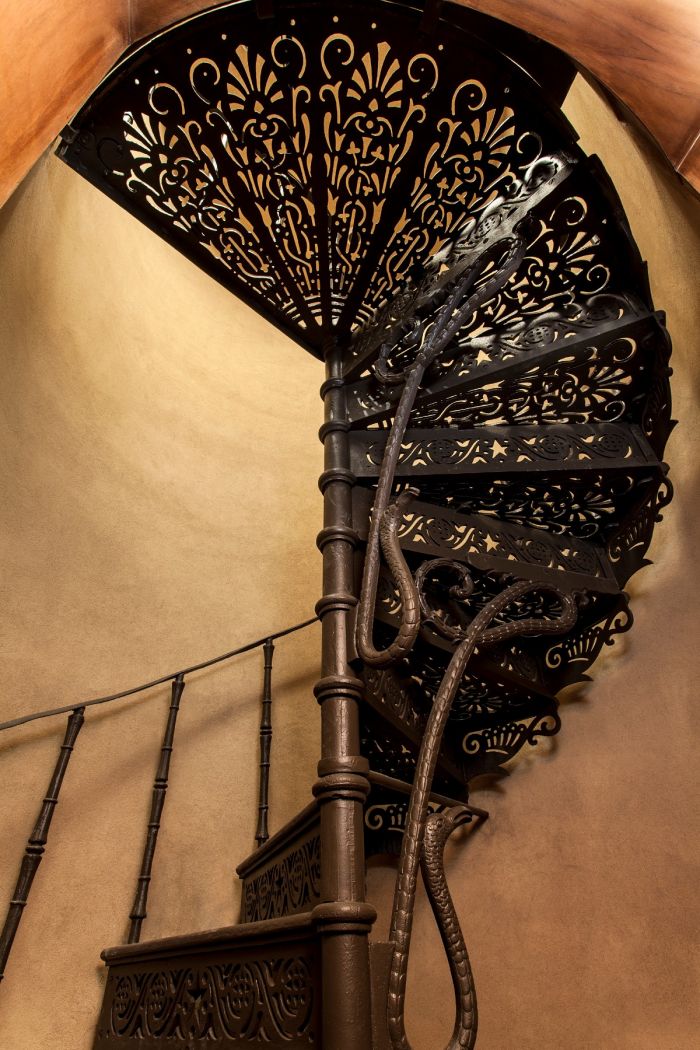
The bar area features old sugar-making pieces have been transformed into prominent chandeliers, with the bar top made with nickel-plated brass. Another aspect of the original building that has been kept intact is a spiral staircase that leads to the Climatized Cellar.
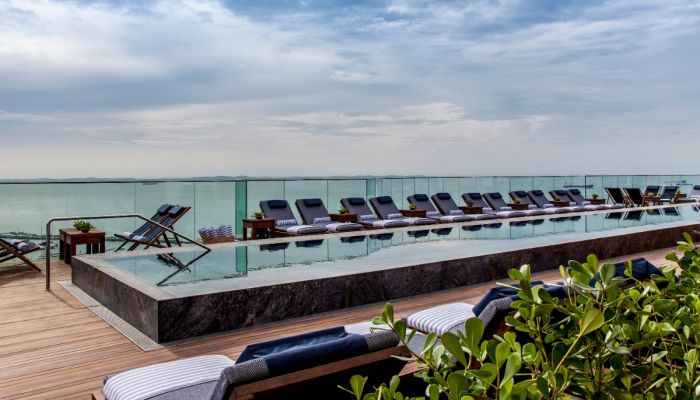
A second bar area has been placed on the rooftop next to the pool lined with Azul Bahia granite, surrounded by a wooden deck and lounge chairs for the guests to are looking for a relaxing swimming and sunbathing experience. Highly prized for is blue color, the Azul Bahia granite is a top choice among the discerning designers and consumers. Sourced locally in Brahia, this exclusive material is characterized by its navy blue color with white clustering and occasional green veining, making it yet another element of the local culture that artfully blends with the luxury of Fasano.
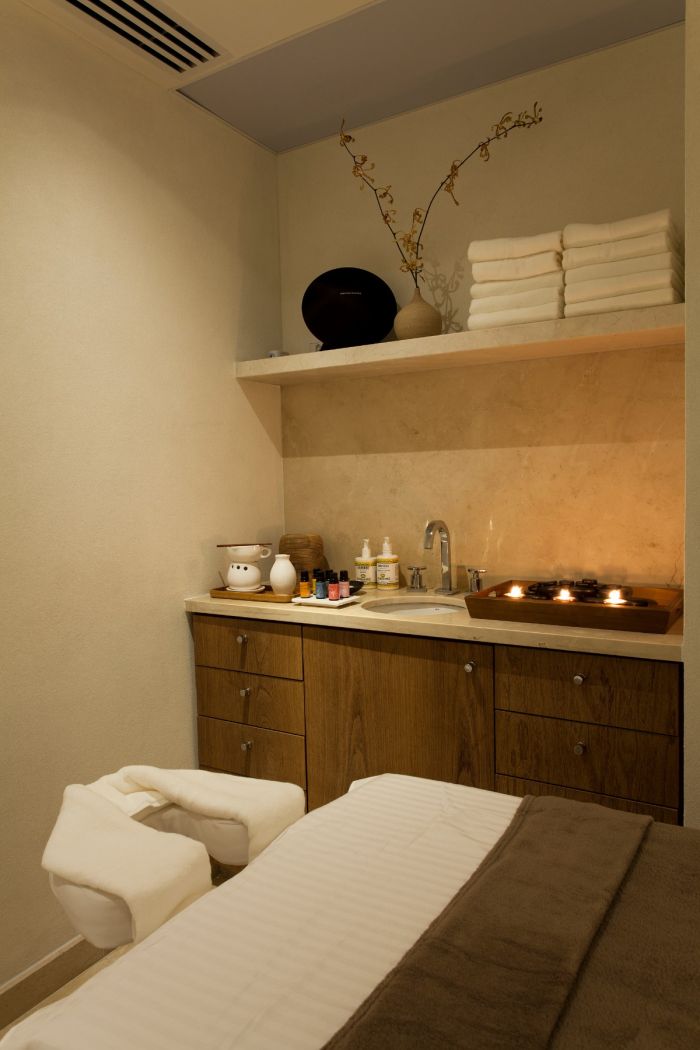
The Spa is an experience in itself for the body and mind featuring the classic treatments that have become a staple of all Fasano hotels such as the Ayurveda body treatments, facials, reflexology massages, shiatsu, scrubs and wraps, as well as a massage experience that has been inspired by the Bahian traditions and local herbs. The massage starts with a soothing foot bath with rock salt, local herbs and lavender, meant to soothe you, while at the same time pulling out any tension from the body. Rock salt is known in the African culture as a protector against evil. It keeps your energy safe and wards off any negative energy coming your way. Since massages are all about self care and positive energy, it’s no wonder that the Spa at Fasano uses rock salt as a primary cleansing ritual. The massage then continues with a full body massage which includes deep tissue and reflexology using coconut oil, known for its benefits in hydrating and soothing dry skin as well as aiding in relaxing muscles.
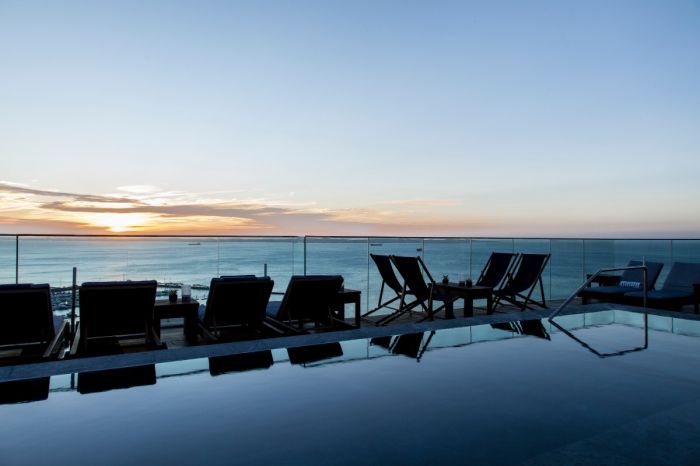
Whether you are looking for a relaxing vacation at the beach or by the pool, or you want to delve deep into the Afro-Brazilian culture, music, and dance, Salvador Bahia is the perfect place for family or solo trips and is guaranteed to have you coming back over and over to discover even more facets of the city.









